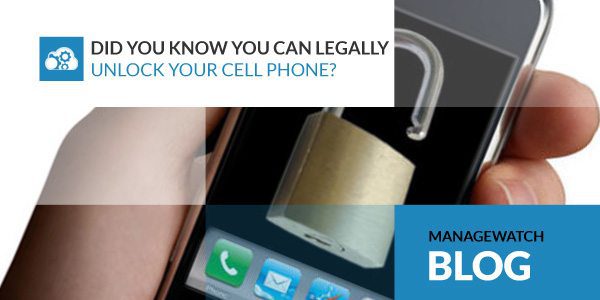Did you know that when U.S. consumers purchase a new cellphone, they can legally change the network carrier the phone uses. The bill known as The Unlocking Consumer Choice and Wireless Competition Act would repeal a Library of Congress (LOC) rulemaking determination, which went into effect August 1st of 2014, has been put into full effect as of February of 2015 as an exemption to provisions of the Digital Millennium Copyright Act (DMCA).
“As long as their phone is compatible and they have complied with their contracts, consumers will now be able to enjoy the freedom of taking their mobile service – and a phone they already own – to the carrier that best fits their needs,” the White House said in a statement.
UNLOCKING Vs. JAILBREAKING and ROOTING
Cellphones are typically “locked,” to a specific service provider like AT&T or Verizon. The operating system (most often iOS or Android) built in to the phone encrypts or locks devices so that they cannot be used with any other network.
Jailbreaking is the process of removing limitations on iOS devices. Jailbreaking permits root access to the iOS file system and manager, allowing a cell phone owner to install tweaks, hacks, and mods that aren’t allowed in the App Store – including changing the network carrier. Rooting Android is almost the same thing as Jailbreaking iOS. Unlocking is the ability to change network carriers legally and is the only change to a mobile device’s operating system covered by the bill.
MORE FLEXIBILITY AND LESS LANDFILL WASTE
“The bill Congress passed today is another step toward giving ordinary Americans more flexibility and choice, so that they can find a cell phone carrier that meets their needs and their budget,” the president said, when the bill cleared Congress.
“This bill ensures that consumers will be able to do what they rightfully expect to be able to do with phones they have purchased: use them on whatever network they like,” Laura Moy, an attorney at advocacy group Public Knowledge, stated. Moy added that the bill will also “keep millions of devices out of landfills.”
LoC MADE ‘UNLOCKING’ ILLEGAL
This new bill is completely counter to the decision made by the LoC last year that said it was legal for customers to jailbreak a phone but illegal to unlock any device, whether a smartphone or tablet. This prior bill gave legal authority to service providers to keep a consumer’s phone “locked,” for which the cell phone owner faced large costs in switching carriers or attempting to link to other carriers overseas while traveling.
CARRIERS TO PROVIDE UNLOCKING CODES
Though the law makes unlocking legal, it does not order wireless carriers to provide customers the unlock codes without a valid reason. Consumers who are still under a previously-signed service contract with their service providers, may have to first satisfy the terms and period of that ongoing contract before being allowed to unlock their device.

